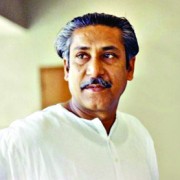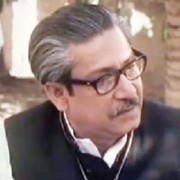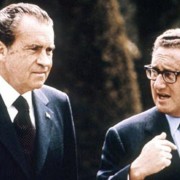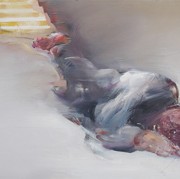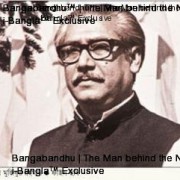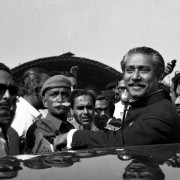Bangabandhu’s March 7 speech a framework of Independence
Political critics and senior opposition leaders described Bangabandhu’s March 7 address a very “matured statement” with some of them calling it the “framework” of independence 41 years ago.
“It was a crucial statement at a crucial moment of the nation . . . He (Bangabandhu) had given the framework of our great independence through this address,” BNP’s standing committee member, highest decision making body, and former army chief Lt. Gen. (retd) Mahbubur Rahman told BSS as approached for his analysis of the speech.
He added that the “brief” address was “appropriate” for that time as it “largely fulfilled” peoples expectation at that time and it inspired the people to join the war for independence.
Rahman described the address as an “unforgettable” speech as he recalled that he listened to it on BBC Radio as he was posted in West Pakistan at that time being an army officer.
“He (Bangabandhu) depicted the picture of disparity towards the then East Pakistan by the Pakistani rulers and called for the war of independence in his address in his own way,” said Rahman, who was stranded in Pakistan in 1971.
His comments came as BSS approached a number of opposition leaders for their impersonal views of the historic address being non-Awami Leaguers.
Talking to BSS earlier Liberation War veteran and BNP vice president retired major Hafizuddin Ahmed said Bangabandhu’s March 7 address was the “most matured statement” as several of his party colleagues and politicians of other parties echoed him in analysing the historic speech.
“As a matured leader he rightly gave the appropriate message in his address at that moment . . . he gave all the signals in appropriate manner,” Ahmed said.
He said the proclamation of independence on that day in 1971 from that public rally could have proved counterproductive portraying the Bangladesh’s armed resistance against Pakistani troops as “secessionist movement, instead of independence war”.
He also argued that the students or other such radical elements could have done many things whimsically which “he (Bangabandhu) could not do as the top leader with huge responsibilities”.
Ahmed also rejected criticisms by a section of critics who disapproved Bangabandhu’s staying home at his Dhanmandi residence on March 25 black night when he was arrested by the Pakistani troops.
BNP leader Shahjahan Siraj, who played a crucial role in organising the student movements and the Liberation War in 1971, said “the brief address of Bangabandhu on that day contained a comprehensive guideline for the freedom of Bengalis from the clutches of Pakistan”.
“It was the actual reflection of the hopes and aspirations of Bengalis in true perspective at that time,” Siraj said.
Retired colonel Oli Ahmed, currently the chief of Liberal Democratic Party (LDP), said “the March 7 speech was very crucial for taking the Bengali officers and soldiers to revolt against Pakistan”.
“For justified reasons, Bangabandhu could not openly call for independence in his speech, but it carried the directives for a total armed struggle . . . In line with the directives we staged the revolt at Eighth Bengal in Chittagong Cantonment under late president Ziaur Rahman,” said Ahmed, one of the founding leaders of BNP.


